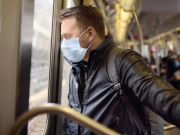
As the United States witnessed record-breaking daily coronavirus case counts over the weekend, public health experts warned that hospitals may soon reach a breaking point. More than 41,000 COVID-19 patients are hospitalized across the country, a 40 percent rise in the past month, The New York Times reported. But in sharp contrast to the early… read on >






























